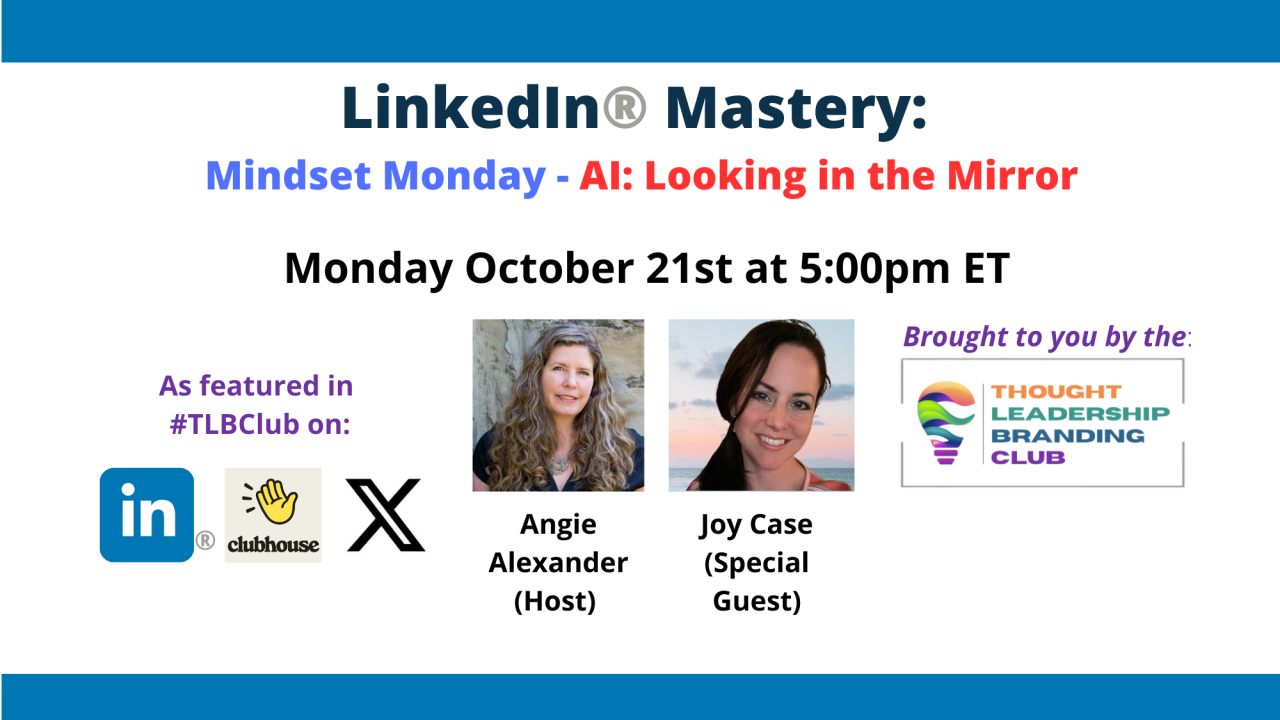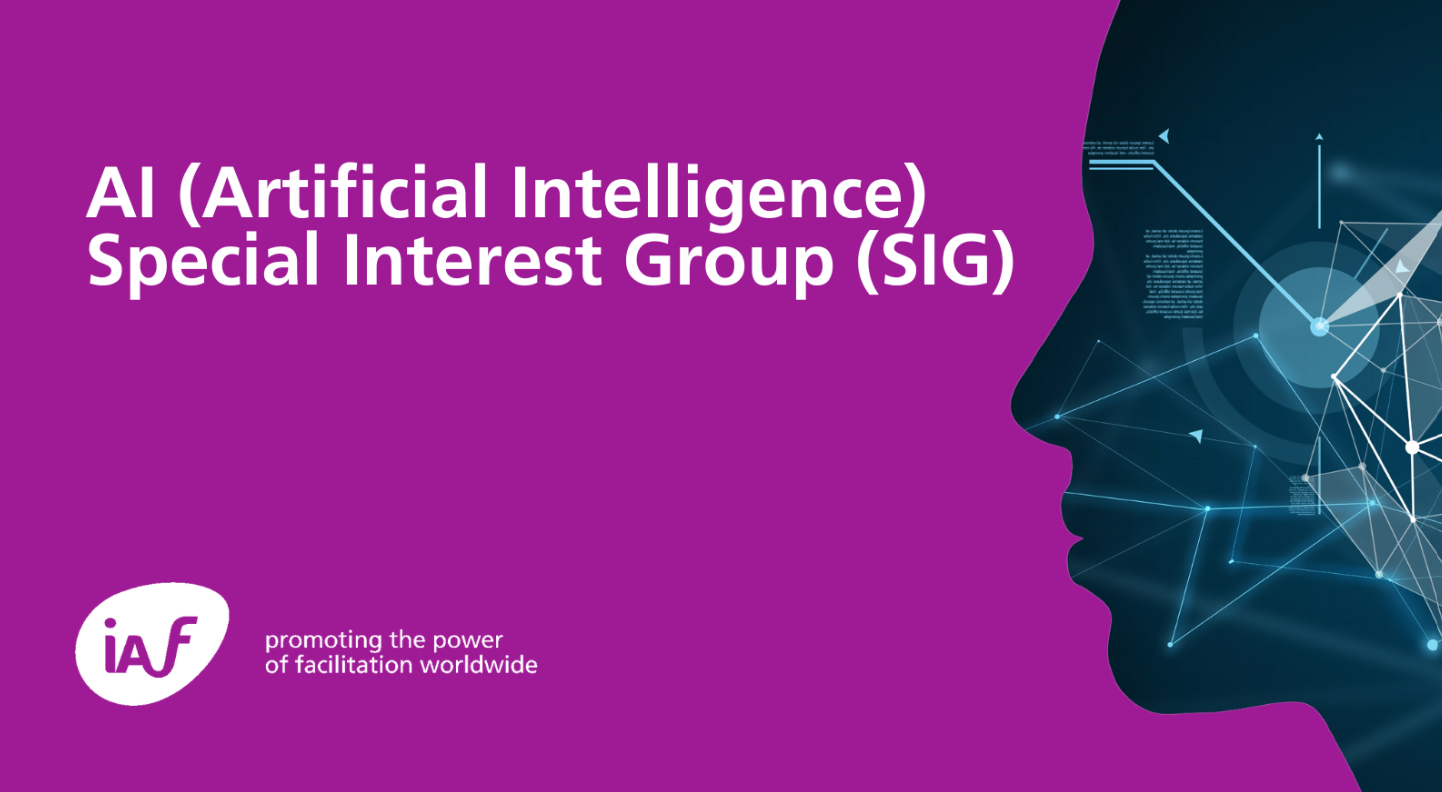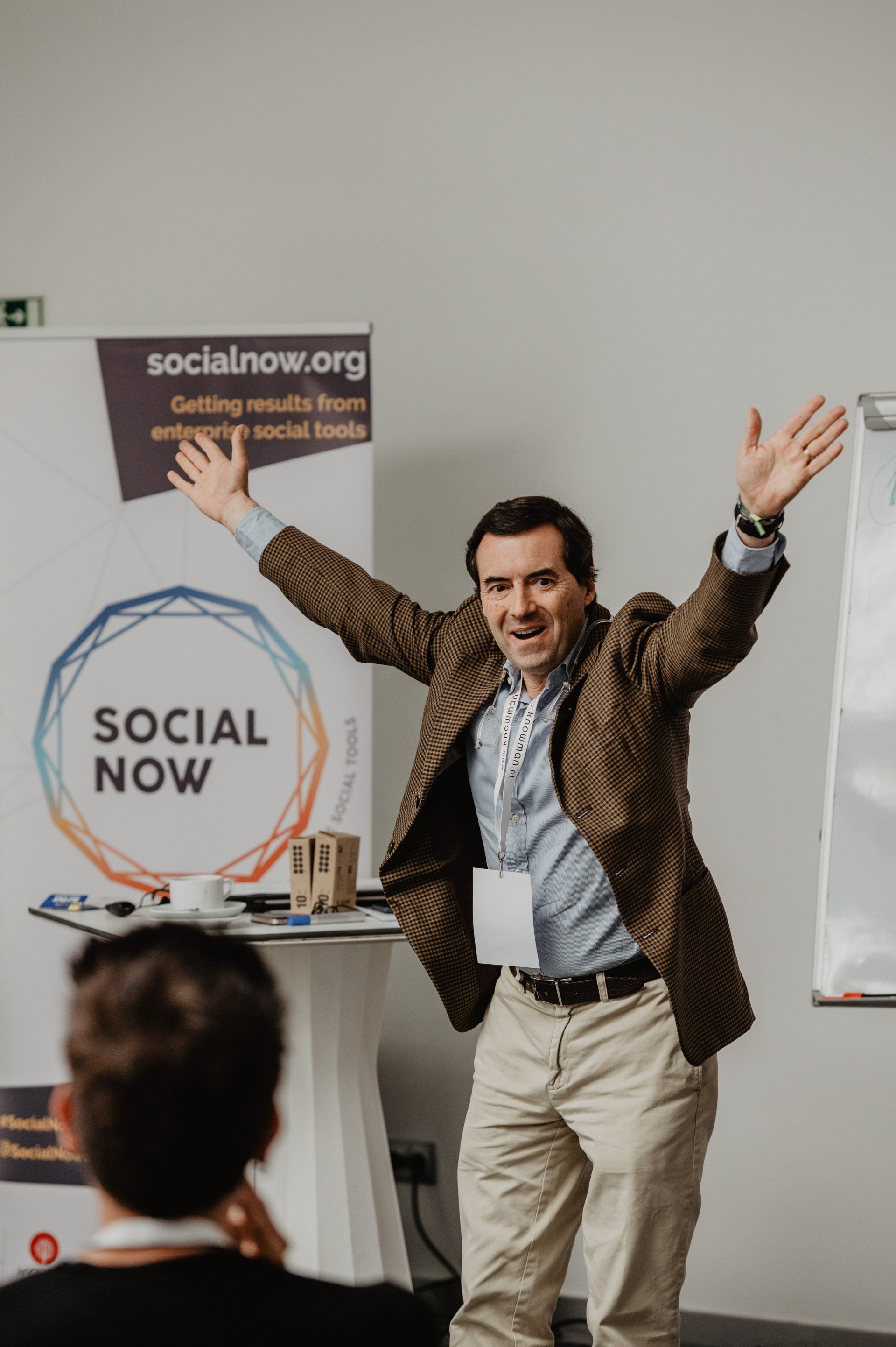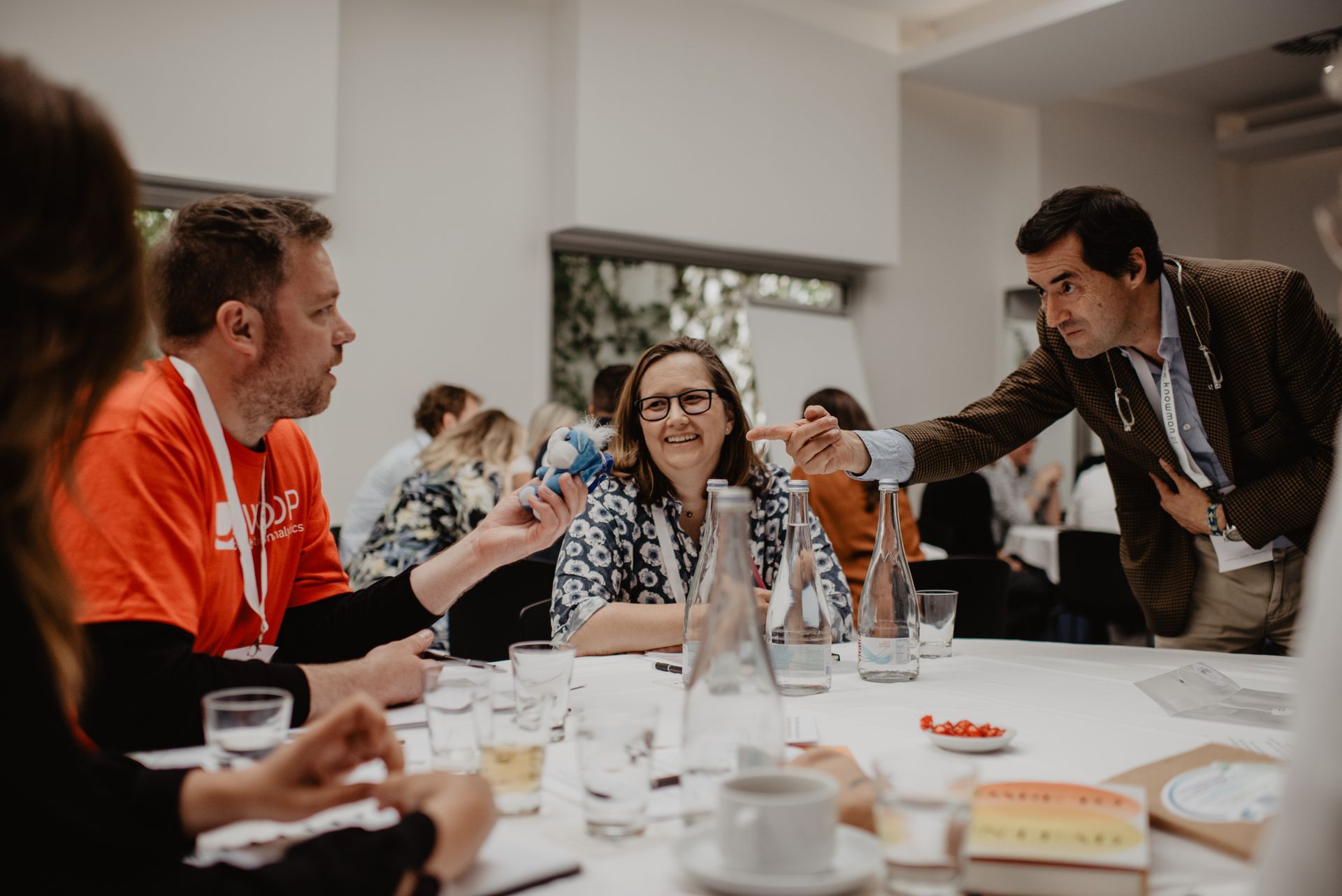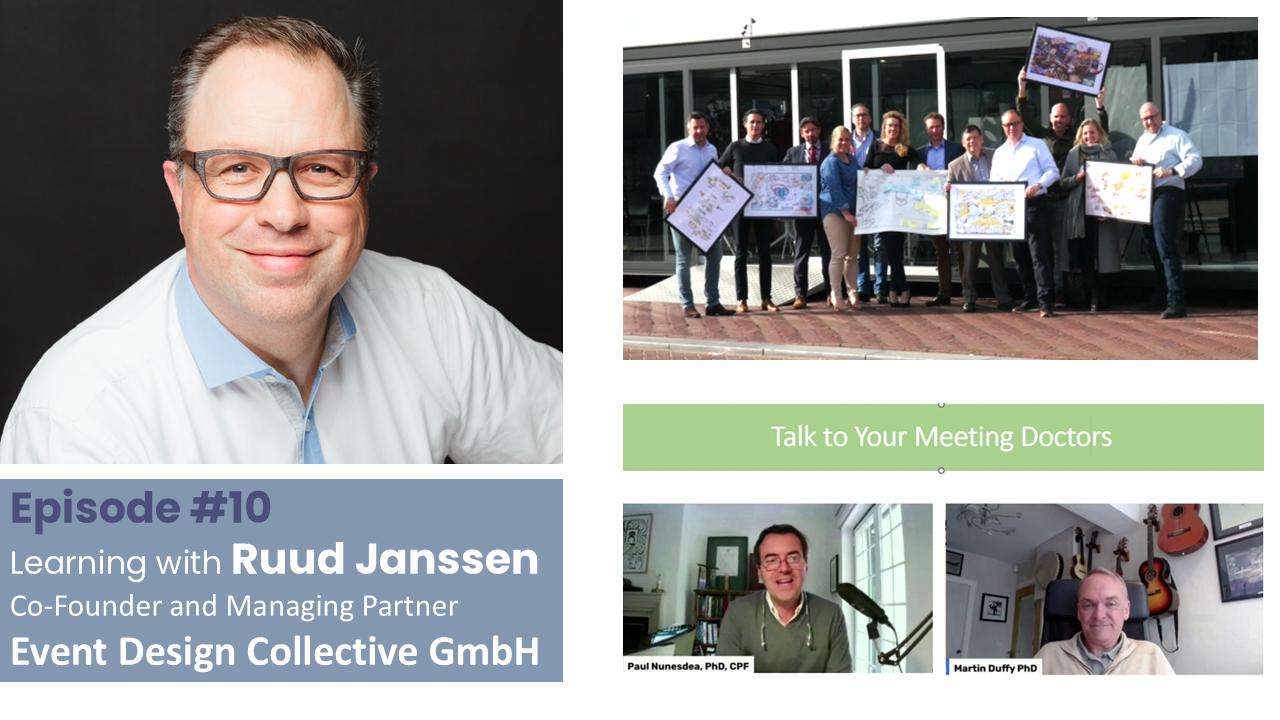
Will AI make meetings obsolete?
AI Revolutionizing Meetings: Exploring the Impact and Future Possibilities

AI has the potential to significantly change the way meetings are conducted, but it is unlikely to make them completely obsolete. While AI can automate certain aspects of meetings and enhance productivity, there are still valuable aspects of human interaction that are difficult to replicate.
Here are a few ways AI can impact meetings:
- Scheduling and logistics: AI-powered virtual assistants can help schedule meetings, find suitable meeting times, and manage calendars more efficiently. They can analyze participants' availability, preferences, and optimize scheduling based on various factors.
- Transcription and summarization: AI can transcribe meetings in real-time, making it easier to capture and review discussions. It can also summarize key points and action items, making it easier for participants to recall important information.
- Natural language processing: AI can help facilitate communication during meetings by providing real-time language translation, enabling participants who speak different languages to communicate effectively.
- Intelligent assistants: AI-powered virtual assistants can assist during meetings by providing relevant information, answering questions, and pulling up data or documents on-demand. They can also help with note-taking and task management.
- Decision support: AI can analyze data and provide insights during meetings, helping participants make more informed decisions. It can identify patterns, trends, and correlations that may not be immediately apparent to humans.
AI-powered meeting management tools leverage artificial intelligence to enhance various aspects of meetings. These tools include virtual assistants that aid in scheduling and administrative tasks, transcription services that convert spoken words into text and provide summarization capabilities, intelligent agenda builders that generate meeting agendas based on participants and topics, real-time language translation tools for multilingual meetings, AI-assisted note-taking tools that capture key moments and create action items, and smart meeting analytics platforms that provide insights into meeting effectiveness and participant engagement. These tools utilize AI algorithms to streamline meeting processes, improve productivity, and enhance collaboration.
However, despite these advancements, there are still aspects of meetings that require human presence and interaction. Face-to-face communication allows for non-verbal cues, empathy, and personal connections that are essential for effective collaboration, brainstorming, and relationship-building. Certain complex discussions, negotiations, and creative problem-solving may still require human involvement.
Here are a few examples of AI-powered meeting management tools that utilize artificial intelligence to enhance various aspects of meetings:
- Virtual assistants: Virtual assistants like Microsoft's Cortana, Google Assistant, or Amazon's Alexa can help with meeting scheduling, sending out invitations, and managing calendars. They can also provide reminders, suggest available meeting times, and handle basic administrative tasks.
- Meeting transcription and summarization tools: AI-powered transcription services such as Otter.ai, Rev.ai, or Verbit can transcribe spoken conversations in real-time or after the meeting. These tools use automatic speech recognition (ASR) technology and natural language processing (NLP) to convert spoken words into text. Some services also provide AI-driven summarization capabilities to extract key points and action items from the transcription.
- Intelligent agenda builders: Tools like x.ai or Clara can create meeting agendas based on the topics and participants involved. They can analyze calendars, email conversations, and relevant documents to generate an agenda that suits the meeting's purpose and participants' preferences.
- Real-time language translation: AI language translation tools like Google Translate or Microsoft Translator can assist in multilingual meetings. They can provide real-time translation of spoken or written content, enabling participants who speak different languages to communicate effectively.
- AI-assisted note-taking: Tools like Aira or Voicea (now part of Cisco Webex) use AI algorithms to listen to and capture key moments during meetings. They can take notes, create action items, and highlight important discussions or decisions. Some tools even integrate with collaboration platforms to automatically distribute meeting notes to participants.
- Smart meeting analytics: AI-powered analytics platforms, such as Zoom.ai or Cisco Webex Assistant, can analyze meeting data to provide insights into participants' engagement, meeting effectiveness, and productivity. These tools can identify patterns, sentiment, and engagement levels to help optimize future meetings.
In summary, AI can enhance meetings by streamlining logistics, providing information, and supporting decision-making. While it may reduce the need for some types of meetings, it is unlikely to completely replace the need for human interaction and collaboration in many situations.
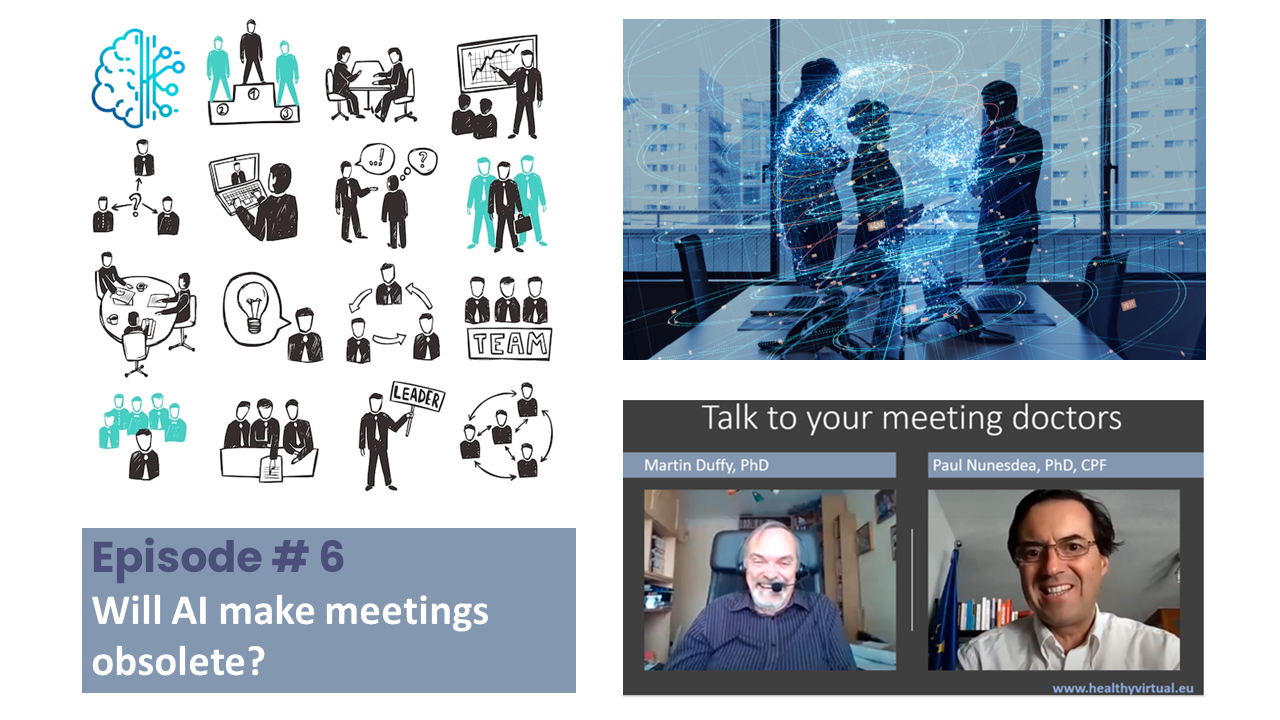
About us
My Meeting Support, through its parent company col.lab | collaboration laboratory Ltd, aims to revolutionize the way events and training programs are managed. By bringing together a community of experienced facilitators and leveraging the power of digital tools for collaboration we provide services that are not just about executing an event or a training session, but about crafting unique experiences that promote collaboration, learning, and engagement. It's about fostering connections and creating environments where ideas can thrive and lead to actionable outcomes. This approach ensures that every event is not just a fleeting moment but a lasting impact.
"Talk To Your Meeting Doctors" is a dynamic and engaging series that aims to address common challenges faced in meetings and offer expert advice and strategies to enhance meeting effectiveness. As co-hosts, Paul Nunesdea and Martin Duffy bring their wealth of experience and expertise to the forefront by hosting conversations with renowned guest speakers sharing practical insights and facilitating discussions on topics such as meeting design, participant engagement, decision-making processes, and fostering a culture of collaboration.
This LinkedIn Live event series serves as a valuable platform for professionals from diverse industries and backgrounds to gain actionable knowledge, exchange ideas, and discover innovative approaches to optimize their meeting experiences.
Check out the next upcoming episodes: here

Follow Us
"Be brave enough to start conversations that matter and shift the direction of change for the better."
col.lab | collaboration laboratory is a spin-off from the book series " Architecting Collaboration " and our privacy policy can be consulted here
My Meeting Support is an event services brand by col.lab | collaboration laboratory










